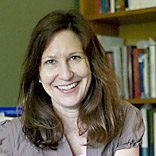Pamela Sue Anderson
Professor of Modern European Philosophy of Religion, Oxford University
presents
“Concepts to Live By:
Change for the Future of Philosophy of Religion”
Wednesday, January 7th, 2015
12pm
Swift Hall Common Room, University of Chicago

Suggested pre-workshop reading:
“Editorial: In Guise of a Miracle,” Pamela Sue Anderson. From Sophia (2014) 53:171-181.
&
&
The Workshop on the Philosophy of Religions is pleased to welcome Oxford’s Pamela Sue Anderson to the University of Chicago on Wednesday, January 7th, 2015. Professor Anderson will be discussing the future of philosophical reflection on religion and the methodological challenges that the future poses. For instance, do we need to create new concepts? This would be to replace the dominant focus on traditional theism and the omni-perfect God. But it is also to raise questions about the social and material locatedness of the concepts which have been used, as if they were inclusive and ‘neutral.’ Another example of where this conceptual issue could take our discussion is whether we should be focusing more on religious practices; and if so, how do we ensure that these practices are not mystifying; that is, empty of content?
